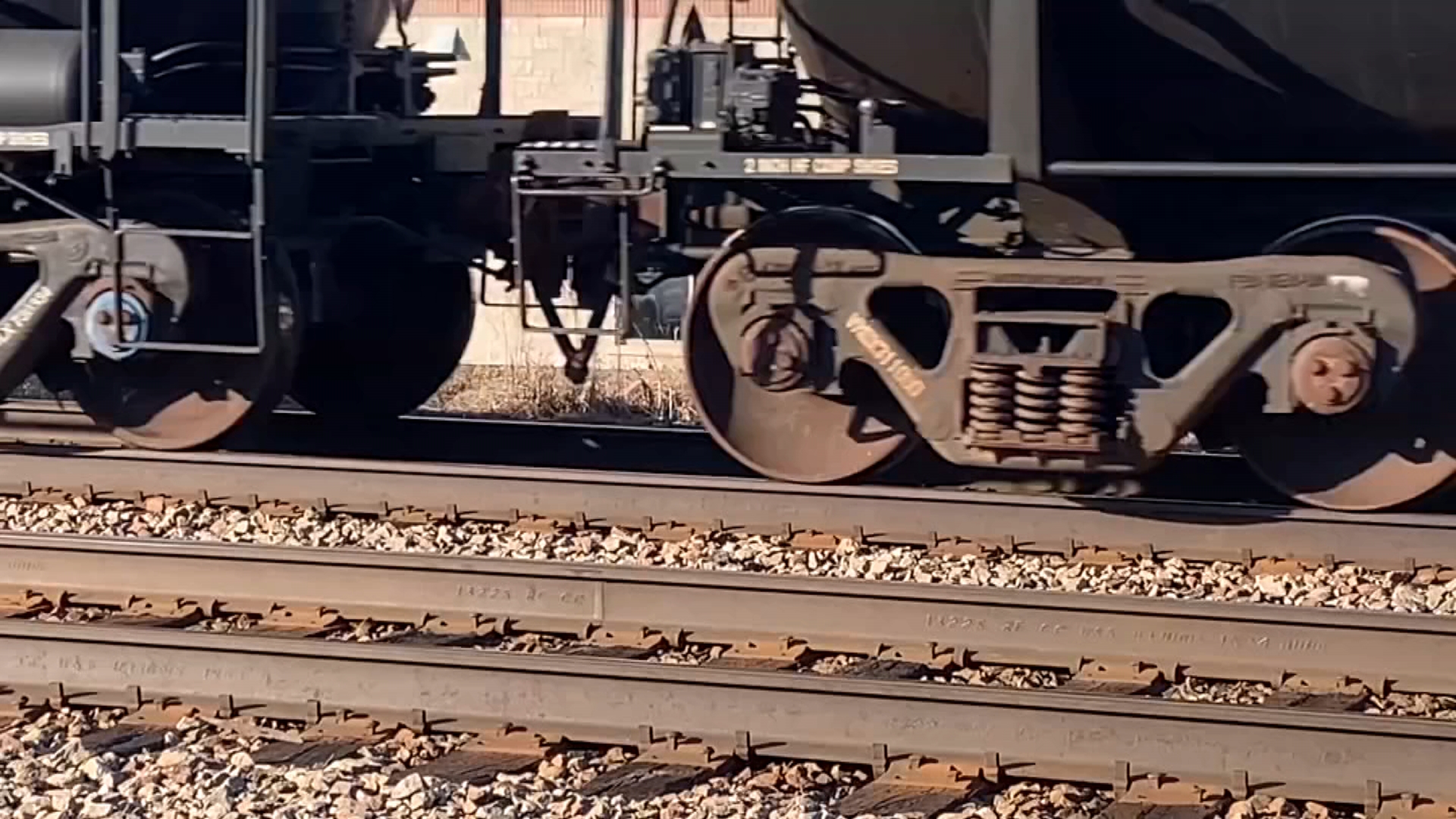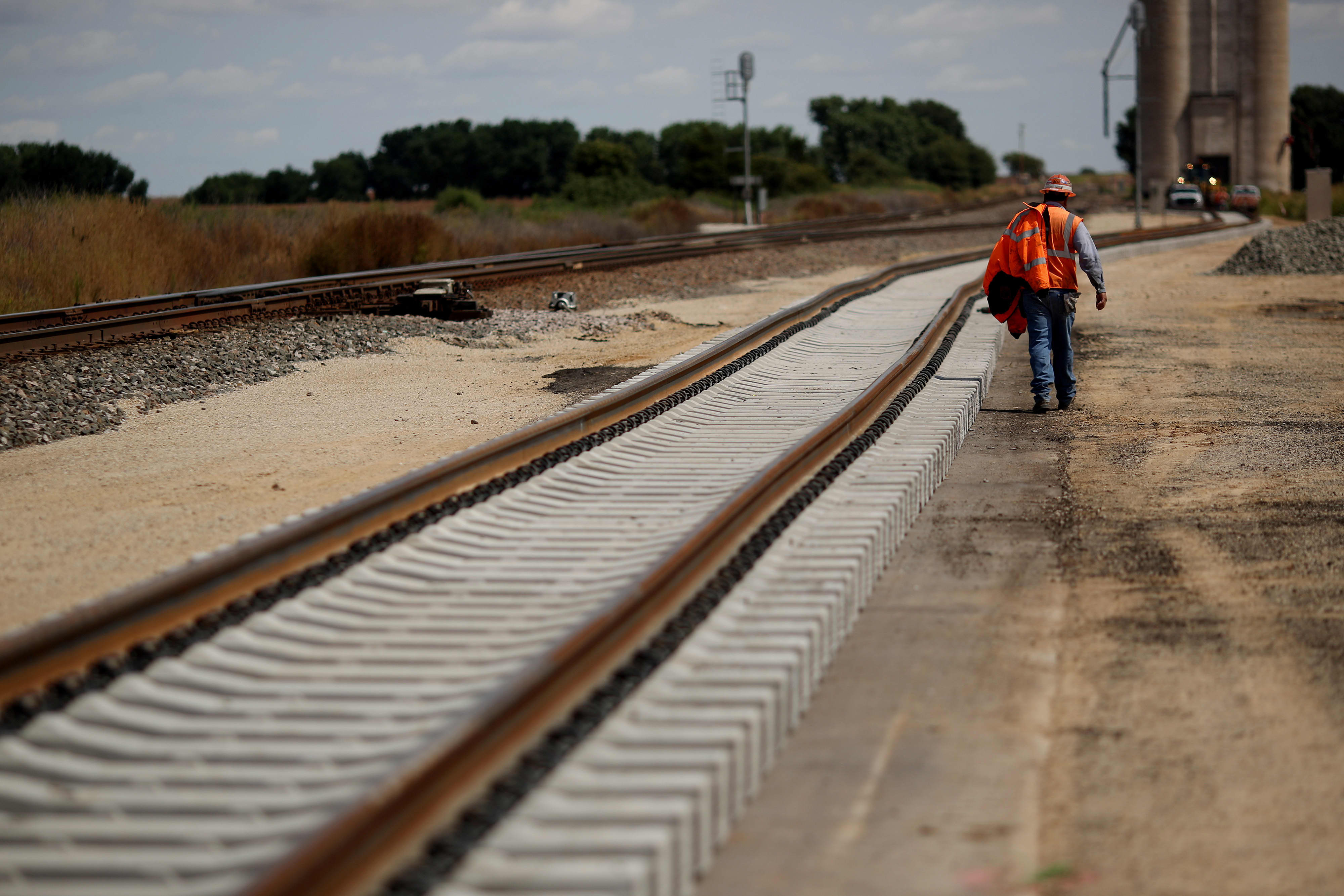UPDATE: Thursday morning, following a tentative agreement reached by union workers and railroad companies, both Metra and Amtrak said all lines will run as scheduled, and that they were working to restore service to any previous pre-emptive cancelations. Our original story continues below.
Metra, one of Chicago's largest movers of commuters from the suburbs to the city, said Tuesday that it would need to suspend train service on multiple Chicago-area lines should a freight rail worker strike take place later this week, a move that would affect thousands of daily train travelers.
According to a report from NBC News, freight workers are threatening to strike as early as Friday for reasons including higher pay, more generous paid leave, and a renegotiation of strict attendance policies that makes it difficult to take time off.
"Our Unions remain at the bargaining table and have given the rail carriers a proposal that we would be willing to submit to our members for ratification, but it is the rail carriers that refuse to reach an acceptable agreement," a statement from The SMART Transportation Division on Monday said. "In fact, it was abundantly clear from our negotiations over the past few days that the railroads show no intentions of reaching an agreement with our Unions.
Feeling out of the loop? We'll catch you up on the Chicago news you need to know. Sign up for the weekly Chicago Catch-Up newsletter here.
"The railroads are using shippers, consumers, and the supply chain of our nation as pawns in an effort to get our Unions to cave into their contract demands knowing that our members would never accept them," the statement continues.
While Metra is not part of the labor dispute, the train operator said in a statement to NBC 5 Tuesday that a rail worker strike "may directly impact Metra's ability to operate on some lines," since the majority of Metra's lines travel on tracks that are either owned, maintained or dispatched by, or intersect with freight railroads.
"Four of our lines, the BNSF and Union Pacific North, Union Pacific Northwest and Union Pacific West, are owned by and directly operated by freight railroads. If the work stoppage occurs, we expect there will not be service on these lines."
Metra's BNSF line takes passengers from Chicago's western suburbs in DuPage County to and from the city. The train's Union Pacific North line services passengers up and down the North Shore, while the other two lines shuttle commuters from as far north as McHenry County, and as far west as Kane County.
Metra, which just extended its $100 monthly Super Saver pass, does say that two of its lines would still run as scheduled -- the Metra Electric and Rock Island lines -- since Metra owns, operates and controls those lines.
However, "on the other lines," Metra says, "we are in communication with the relevant freight railroads to understand how we may be impacted and to determine our options."
Amtrak on Monday already moved to pre-emptively cancel three long-distance train routes that originate in Chicago, a move that the train operator says would "avoid possible passenger disruptions" due to the impending strike.
Though Amtrak also is not part of the dispute, the train operator said in a statement that a rail worker strike "could significantly impact" its passenger service since it operates nearly all of its 21,000 route miles on tracks that are owned, maintained and dispatched by freight railroads.
According to Amtrak, the affected routes are a portion of the Texas Eagle, along with three long-distance routes that originate in Chicago: California Zephyr, Empire Builder and Southwest Chief.
"These initial adjustments could be followed by impacts to all Long Distance and most State-Supported routes," Amtrak's statement continued.
But train passengers may not be the only ones impacted by a strike.
Due to the volume of products carried and moved by rail, supply chains for various items could be affected. According to the head of the United States Chamber of Commerce, a rail worker strike could further affect economic and supply chain issues by impacting the flow of goods and raise already inflated prices.
"A shutdown of the nation's rail service would have enormous national consequences," the Chamber said on Monday, Reuters reports.
A White House official told The Associated Press that President Joe Biden and members of his Cabinet are in touch with both sides in hopes of preventing a strike, and that a number of trade groups representing railroad shippers are urging lawmakers to be prepared to block a strike.
Sign up for our Breaking newsletter to get the most urgent news stories in your inbox.
Last week, a coalition of 31 agricultural groups sent a letter to Congress, and the Fertilizer Institute trade group joined the chorus of concerned shippers Saturday because shipments of ammonia and other fertilizers will be delayed.
“Supply chains are already strained and there is currently zero elasticity in rail transportation,” FIT group President and CEO Corey Rosenbusch said. “This situation will get exponentially worse every day there is no resolution.” According to Rosenbusch, more than half of all fertilizer is hauled by railroads.
Additionally, more than 75% of all finished vehicles are taken from factories to dealerships by train, and countless other products move by rail.
The Association of American Railroads estimates shutting down the railroads would cost the economy $2 billion dollars a day.
The Associated Press contributed to this report.




